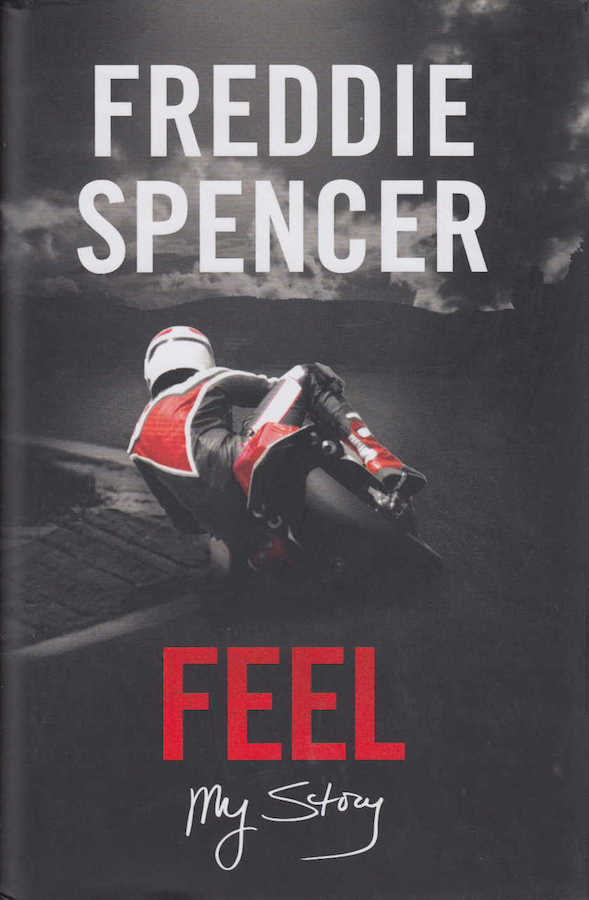How Spencer got his speed
What a book! It begins the way Freddie Spencer started races in his prime – full on.
In the first dozen pages he raises the subjects of racism in the Deep South, his severely burned left hand at age two, being the runt of the family litter, his father’s post-traumatic stress disorder, getting chased by the cops on his Honda mini-bike, domestic violence, guns…
Small wonder he found happiness riding a mini-bike in his backyard. He rode every day, learning how the bike reacted to each input. Afraid of the dark, he lay awake at nights thinking about his riding.
“The traumas of my childhood, the pain I felt as a kid, the mistrust and discomfort, contrasted with the peace and purpose I felt when I was riding my bike … Always striving to improve and understand and go faster, always pushing myself,” he writes at one point.
It is very different to the Freddie Spencer we thought we knew, the young man who achieved his goals of becoming the youngest world 500 champion and the only 250/500 double champion, but didn’t go on as many expected to win a swag of titles. The world seemed to be at his feet at the end of 1983, with his first crown secured and Kenny Roberts retiring. The chalk and cheese Americans won all the 500 GPs in 1983 – six each – and Spencer took the title by two points.
It’s also different from his 1980s image as Mr Clean, who liked the soft drink Dr Pepper. Okay, the Dr Pepper bit is true, but Spencer was tough too and nicknamed ‘Fast Freddie’ for good reason. Leading former GP crew chief Mike Sinclair said of Spencer in the mid 80s that he almost seemed to throw the bike at corners. He would somehow get it turned and come rocketing out.
Where did he learn this? Racing from a tender age and plenty of time on all manner of machines. Travelling with father Fred Snr he did 100,000 miles a year in a van, entertained by a tiny TV when they could get reception passing through towns. At 13, Freddie did some of the driving to Daytona; his Dad needed sleep. On some trips into Texas Spencer would make $140 a night in outlaw races. There was a stable of up to eight machines, all prepared by his Dad. At 15 Spencer raced a Yamaha TZ750. Amazing.
Who does this remind you of? Casey Stoner for the grinding schedule of junior racing. Stoner again and Marc Márquez for the take-no-prisoners commitment.
Among the surprises are stories at age 11 of Roberts ignoring his first request for an autograph on a wet night at the Houston Astrodome. Then Roberts coming to Spencer’s motor home in 1982 and ’83 – first to strap an injured ankle (Freddie and his girlfriend were jumping around being kids) and later with a beer in hand seeking a physiological edge.
The famous last-lap incident in Sweden in 1983, which changed the course of the title, is covered in detail. Roberts stewed on that for the next three decades.
“Kenny understood what it had taken for me to beat him on that last lap, because he had been there flogging himself in that Never Never Land between the edge and the unknown.”
On the last page, Spencer sums it up: “It is not about the money, fame or success, all those things we are sold on a daily basis. It is about hope that by paying attention to the moment you can feel the ones that matter and recognise the situations that will lead to enlightenment.”
RRP $49.99

Don Cox